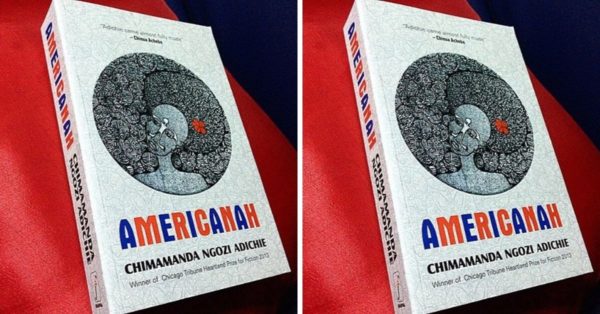
A few days ago, Adichie’s third novel Americanah won New York City’s “One Book, One New York” initiative, which is aimed at getting all New Yorkers to simultaneously read a particular book.
New York City and its metropolitan region has a population of 23 million, and even if only a fraction of that number goes on to buy the book, Americanah would have no issues cruising past the million mark. But even before this remarkable feat, the novel, since its 2013 release, has been a certified bestseller, landing on The New York Times’ bestseller list and shifting 500,000 copies by February of 2015. 500,000 is a Booker- or Baileys Prize-winning figure and Americanah got there without winning either—shortlisted for the latter, overlooked entirely by the former.
It is a testament to the novel’s popularity that Adichie, in news reports, is mostly now referred to as “the author of Americanah.” Which could mean either of two things. First: that knowledge of the novel to which she is most associated, Half of a Yellow Sun, is now being taken for granted. Or second: that Americanah has simply become the book most people talk about when they talk about Adichie. But while this is partly because it is her most recent novel, it is also partly because this novel has followed its author into places the former did not: into race and feminist politics, into pop culture.
Americanah was published in May of 2013 to acclaim. It was expected to sell, even though its author was for a moment afraid it wouldn’t due to its straight-up depiction of race and class. But while the novel predictably received major coverage in a year that proved remarkable for fiction by Africans—NoViolet Bulawayo’s We Need New Names, Taiye Selasi’s Ghana Must Go, Aminatta Forna’s The Hired Man, Chinelo Okparanta’s Happiness, Like Water, all of which came out the same year, were also getting acclaim—it took a bit of time to go massive commercially. After missing out on the 2013 Booker longlist, Americanah picked up Chicago Tribune’s Heartland Prize for Fiction. In December, days before Beyonce’s sampling of “We Should All Be Feminists” dropped, the novel was included in The New York Times Book Review’s 10 Best Books of 2013, sending it up the paper’s Paperback Trade Fiction list, to as high as No 10 by the week dated 25 May of 2014. Prior to this, though, the New York Times 10 Best Books selection had, that December, pushed it from No 3,873 to No 179 on Amazon’s hourly-updated list of their 10,000 bestselling books. A development covered by The Atlantic amidst a conversation regarding how much the Beyonce feature contributed to the boost in sales. The novel would go on to spend 78 weeks on NPR’s Paperback Bestseller list and 3 weeks on its Hardcover list.
In February of 2014, Americanah won its biggest award yet: the National Book Critics’ Circle Award for Fiction, beating Donna Tartt’s Pulitzer Prize-winning The Goldfinch. It was a recognition that Half of a Yellow Sun had been a finalist for in 2007 (as had Teju Cole’s Open City in 2012). Afterwards, Americanah went on to be named finalist for the Baileys Prize and the Andrew Carnegie Medal for Excellence in Fiction. In May of that year, the novel was optioned by Lupita Nyong’o, to be made into a film starring her and David Oyelowo. In 2015, Americanah was shortlisted for the biennial IMPAC Dublin Award, a prize Half of a Yellow Sun had been longlisted for. In February of that year, during Adichie’s pre-French publication promotion of the novel, France24 reported that Americanah had shifted 500,000 copies in the US while being translated into 25 languages.
When TIME named Adichie in its 2015 list of “100 Most Influential People,” Americanah was thrice referred to in her profile. And as her reputation as a feminist quickly matched her fame as a novelist, Americanah followed “We Should All Be Feminists” into pop culture. The novel is featured in Season 4 of the hit TV series, Orange Is the New Black, where a female prisoner is seen reading it. In 2016, the actress Tika Sumpter, who is set to portray Michelle Obama in a biopic, was asked what she thought about Adichie suggesting in Americanah that Michelle’s wig contributed to the public’s embrace of her husband. The novel’s nomination for the “One Book, One New York” initiative came from the actress Bebe Neuwirth.
France24′s 2015 500,000-figure report shows that, within two years of release, Americanah had become Adichie’s fastest selling book. Early sales of Half of a Yellow Sun had been slower, but still a trailblazer for high literary fiction. Released in 2006, The Guardian reported that it pushed 187,000 paperback copies in the UK between January and June of 2007, before it won the Orange Prize. By January of 2009, it was 385,000 paperback copies, according to The Bookseller, and “half-million copies in the UK alone” by October of that year according to The Guardian. It would go on to shift 525,438 according to a 2010 Nielsen BookScan report, becoming the third bestselling Orange Prize-winning novel ever behind Andrea Levy’s Small Island and Lionel Shriver’s We Need To Talk about Kevin. All three novels, meanwhile, have outsold every single Booker Prize-winner except Yann Martel’s Life of Pi. At that blistering pace, it is safe to assume, despite the lack of follow-up reports in the seven years since, that Half of a Yellow Sun may be in its latter hundreds of thousands, particularly given its 2015 crowning as the Baileys Prize’s “Best of the Best” of the 2006-15 decade. But it is also remarkable, based on the 2010 figures of 525,438, that what it achieved commercially in five years, Americanah achieved in two. One sees how natural it is that Half of a Yellow Sun is being outsold by Americanah. Barring their common preoccupation with love, unlike the former which is set in Nigeria and whose global themes of war and loss are particularized by geography, the latter is set on three continents and deals with race and class, issues that infinitely trouble the West in particular—the West where these sales figures mostly come from—and so scores a point on broader relatability. In addition to building on Half of a Yellow Sun‘s success, Americanah, formidable as it is, also gains from having being written by an author who, within a year, would climb into a new level of fame.
But if Americanah is winning the commercial race, it faces a tall order in the critical acclaim stakes. Half of a Yellow Sun, upon publication, was hailed as an instant masterpiece and has in its twelve years of existence carved a niche for itself in the hall of classics. Described by The Guardian as “the first great African novel of the new century,” it is perhaps the continent’s most honoured in that time span: the Orange Prize, the PEN “Beyond Margins” Award, the Anisfield-Wolf Book Award, and a litany of other recognition. Its impact and influence are indelible and, in our era of modern African fiction, unrivalled. So powerful is its pull that Purple Hibiscus, itself unnegotiably a classic, often seems underappreciated. But, unfortunately, it further became the yardstick by which some fans measured Americanah. While the aim here is partly to weigh both novels’ global reach rather than their relative importance, one needs to be clear on this question of quality. Americanah is a great novel and a great book, period. The quality of one thing must not be flattened for another to maintain its own. In 2015, when BBC Culture polled American critics to determine “The Greatest Novel of the 21st Century So Far,” Half of a Yellow Sun placed at No 10 and Americanah at No 13. The comparisons of quality will not go away, though. Whenever the Americanah film comes out, it will inevitably be compared to the mixed reception of the Half of a Yellow Sun film, and perhaps a dissatisfied fan will write a well-shared piece comparing Lupita Nyong’o’s performance to Thandie Newton’s and David Oyelowo’s to Chiwetel Ejiofor’s.
Half of a Yellow Sun, a major bestseller, is Adichie’s best acclaimed book, but Americanah, itself powerfully received, will see its “One Book, One New York” win solidify it as her biggest selling book. So our question is: Is Adichie now more readily linked to the former or to the latter? And we ponder this knowing that, being the more recent book, Americanah is the one she has been discussing more.
And still, we ask.
It is not about the novel that made her name. It is not about the novel that is her finest artistic achievement or that would outlast the rest. It is not about the novel that has sold the most. It is about which, among the three, is perceived as the novel in which Adichie is most recognizably Adichie. The one, when seeking to characterise her career, more people talk about when they talk about her and what she represents. The one the average reader is likeliest to recommend to anyone looking to discover her fiction. The one most synonymous with her as Things Fall Apart is with Achebe and Beloved is with Toni Morrison. As White Teeth is with Zadie Smith and Interpreter of Maladies (or could it now be The Lowland?) is with Jhumpa Lahiri. As Midnight’s Children is with Salman Rushdie and Atonement is for Ian McEwan. As Weep Not, Child is for Ngugi.
First, there was Purple Hibiscus; and then it has been Half of a Yellow Sun for the better part of the last decade; and now Americanah makes an unprecedented case. Which is her signature novel—the one people first loved, or the one the most people have praised, or the one the most people are buying?


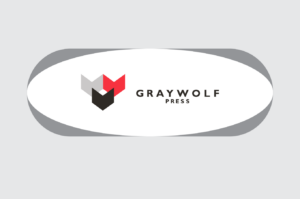
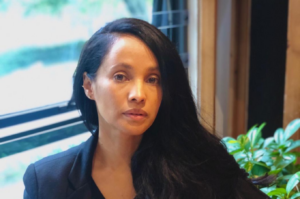
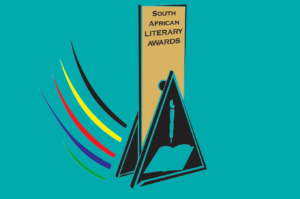
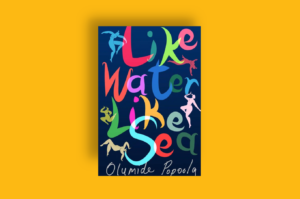
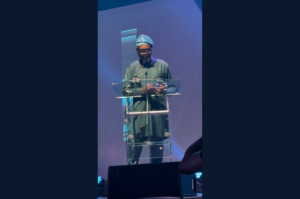


Anthony October 21, 2022 11:04
Adichie leaves a bit of herself in all of her writing including her shorts but in some it is ever more pronounced. Her 'personality' novel shifts more towards Americanah because of its realism and it was highly personalized/ internalized. Purple hibiscus is only a contender because like Americanah it has some of her background, it also introduces us to Adichie's characteristic terse honesty, Half of a Yellow Sun though is a rare achievement.